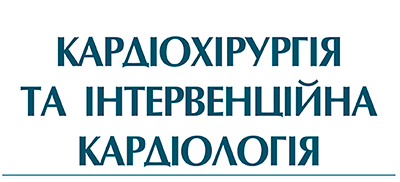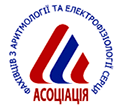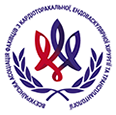Reviews
DOI: http://doi.org/10.31928/2305-3127-2019.4.514
Medical treatment of patients before surgical myocardial revascularization
I.V. Shklianka 1, 2, O.J. Zharinov 2, O.A. Yepanchintseva 1, 2, B.M. Todurov 1, 2
1 Heart Institute, Ministry of Health of Ukraine, Kyiv, Ukraine
2 Shupyk National Medical Academy of Postgraduate Education, Kyiv, Ukraine
The review summarizes the existing data on patients’ medical treatment before coronary artery bypass grafting. The strategy for pharmacologic therapy before coronary artery bypass grafting should be aimed at ensuring compliance with guidelines for basic treatment of stable coronary heart disease, as well as adequate correction of concomitant diseases and conditions for the prevention of peri- and postoperative complications. The specificity of preoperative usage of some cardiovascular pharmacotherapy agents in comparison to the basic treatment of stable ischemic heart disease is analyzed in detail. Excessive or, conversely, insufficient use of certain drugs may lead to the increased incidence of side effects of the treatment, and on the other hand, increase risk of perioperative and early postoperative complications. A special emphasis is payed to the timing of the suspension of anticoagulants and antiplatelets to reduce the incidence of postoperative complications, in particular, bleeding. In particular, there is no need to discontinue acetylsalicylic acid prior to elective coronary artery bypass grafting. Other antiplatelet agents (P2Y12 inhibitors) should be discontinued 3–5 days before surgery. In the case of warfarin therapy, this drug should be discontinued for 5 days, with a temporary transition to low molecular or unfractionated heparin. The use of direct oral anticoagulants can minimize the duration of suspension of anticoagulation therapy, which, however, depends on the presence of concomitant renal failure. The data on the effectiveness of high-dose statins in the postoperative period in reducing the incidence of postoperative atrial fibrillation are presented. Evidence-based medicine has shown that beta-blockers remain the basic treatment in preventing postoperative cardiac arrhythmias, and in some cases the use of amiodarone can be considered. To determine the feasibility of prescribing amiodarone, the existing risk factors, possibility of postoperative cardiac arrhythmias and previous experience of beta-blockers used should be taken into account.
Key words: coronary artery bypass grafting, drug treatment, ischemic heart disease.
| [PDF] | [References] |








